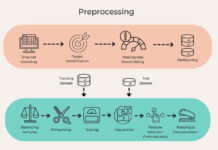At the European Lung Cancer Congress (ELCC) 2025, global biopharmaceutical company AstraZeneca presented a groundbreaking study that demonstrates the power of artificial intelligence (AI) in improving lung cancer risk detection, particularly in resource-constrained healthcare settings.
AI-Driven Screening Enhances Early Detection
As part of the study, AstraZeneca deployed Qure.AI’s qXR-LNMS tool—an AI-based system that automatically identifies lung nodules and lymph node metastasis from chest X-rays (CXR). This tool provides a preliminary screening layer before patients undergo low-dose computed tomography (LDCT), which is currently the gold standard for diagnosing lung cancer.
As reported by digitalhealthnews, the AI tool’s predictions were evaluated against LDCT assessments by radiologists. Results showed promising accuracy and speed, suggesting that AI-integrated CXRs could effectively identify high-risk individuals and significantly reduce the burden on advanced diagnostic infrastructure.
Addressing the Global Burden of Lung Cancer
Lung cancer continues to be the leading cause of cancer-related deaths worldwide and ranks fourth in India. Early detection is vital for improving survival rates, yet many low- and middle-income countries struggle with access to sophisticated screening technologies.
By incorporating AI into diagnostic workflows, AstraZeneca aims to bridge this gap and expand access to early and affordable screening options. The qXR-LNMS tool provides automated, fast, and scalable solutions, especially beneficial in underserved regions.
Leaders Emphasize Equity and Innovation
Iskra Reic, Executive Vice President, International at AstraZeneca, underscored the importance of scalable, tailored innovations in transforming cancer care.
“To transform patient care and work towards eliminating cancer as a cause of death, we must address the disproportionate burden in underserved regions through tailored and scalable solutions,” she stated.
Echoing this vision, Sanjeev Panchal, Country President and Managing Director, AstraZeneca India Pharma, emphasized the transformative role of AI in healthcare.
“Leveraging AI technology could significantly enhance early diagnosis and patient outcomes,” he said.
A Step Toward Smarter, Accessible Cancer Care
Unlike conventional methods that rely on manual interpretation, the AI-based system provides automated and potentially more accurate assessments. This capability not only accelerates the diagnostic process but also improves the cost-effectiveness and scalability of lung cancer screening programs.
With this innovation, AstraZeneca continues to push the boundaries of AI integration in oncology, working toward a future where early cancer detection is accessible, accurate, and equitable for all.























